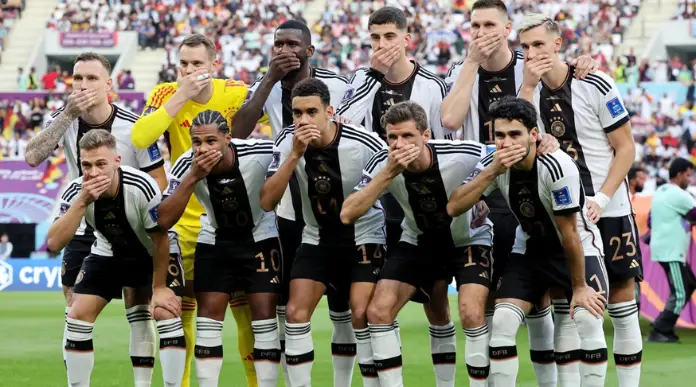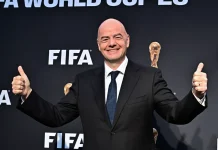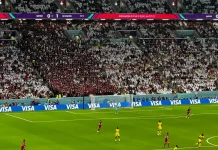Political boycotts of FIFA events have long served as tools of protest against perceived injustice, human rights abuses, and governance failures. While these boycotts have rarely succeeded in halting tournaments or directly changing host nations’ behavior, their symbolic power and long-term influence on FIFA’s policies and global sports diplomacy are significant. From the African boycott of the 1966 World Cup to the 2022 Qatar controversy, these acts of protest reflect the complex relationship between politics, sport, and international accountability.
Historical Cases of Political Boycotts in FIFA Events
The 1966 African Boycott: Demanding Representation
One of the earliest and most impactful political boycotts in FIFA history occurred in 1966 when African nations, led by Ghana, withdrew from World Cup qualifying in protest against FIFA’s qualification structure. At the time, FIFA’s system merged African, Asian, and Oceanian teams into a single group for just one World Cup spot, marginalizing African representation.
Though the boycott did not disrupt the tournament, it catalyzed change. From the 1970 World Cup onward, FIFA guaranteed at least one slot for African teams, a pivotal moment in expanding global football inclusivity and governance reform.
Argentina 1978: Sportswashing Under a Military Regime
The 1978 FIFA World Cup in Argentina took place under a brutal military dictatorship accused of widespread human rights violations. Calls for a boycott emerged from exiled Argentinians and international human rights groups who opposed FIFA’s decision to proceed with the tournament.
Although no countries officially withdrew, the event is now widely cited as a textbook case of “sportswashing”—a term describing how authoritarian regimes use international sporting events to polish their global image. Despite limited impact on FIFA’s operations at the time, the 1978 World Cup increased scrutiny on host country politics and set a precedent for linking football with broader ethical concerns.
Contemporary Controversy: Qatar 2022 and the Limits of Modern Boycotts
Human Rights, Labor Exploitation, and Global Reaction
The build-up to the 2022 FIFA World Cup in Qatar triggered an international outcry over labor abuses, migrant worker deaths, and gender inequality. Human rights organizations, players, and media outlets condemned Qatar’s treatment of foreign workers who constructed stadiums and infrastructure under dangerous and exploitative conditions.
While some players wore protest armbands and several fans called for boycotts, no national football federation officially withdrew. The lack of widespread institutional support for the boycott highlighted a critical limitation: the unwillingness of states and associations to jeopardize participation in a major global spectacle with high financial and cultural stakes.
FIFA’s Stance and Institutional Constraints
FIFA’s approach to boycott threats during Qatar 2022 illustrates its reluctance to confront host nations over political issues. Concerned with protecting its commercial interests and global brand, FIFA avoided sanctioning federations or encouraging debate over participation.
Complicating matters further, FIFA’s governance rules prohibit political interference in national football associations. Countries that attempt to impose government-led boycotts risk suspension from FIFA activities, limiting the feasibility of state-level action and reinforcing FIFA’s grip on international football diplomacy.
Symbolic Protest vs. Direct Disruption: Measuring Impact
Limited Short-Term Effectiveness
Most political boycotts of FIFA events have failed to achieve immediate goals such as canceling tournaments or reversing host decisions. Tournaments proceed as scheduled, with FIFA and local organizers capitalizing on the global appeal of football and the loyalty of fans.
The sheer scale and profitability of FIFA events make them resistant to disruption. For participating countries, the financial, cultural, and political rewards of competing often outweigh the uncertain outcomes of boycott actions.
Long-Term Influence and Awareness
Despite their limitations, political boycotts have had meaningful long-term effects. The 1966 African boycott reshaped World Cup qualification systems, while post-1978 awareness of sportswashing has fueled scrutiny of host nations’ records and intensified demands for FIFA to consider human rights in awarding future tournaments.
Boycotts also contribute to public discourse, placing pressure on FIFA to adapt. For instance, in the wake of Qatar 2022, FIFA introduced new human rights requirements in bidding processes for future tournaments. Though not solely attributable to boycott efforts, these policy shifts are influenced by sustained activist pressure and media attention.
The Global Appeal of Football: A Barrier to Mass Boycotts
Public Sentiment and Cultural Attachment
One reason political boycotts struggle to gain traction is football’s unmatched cultural significance. World Cup matches unite diverse populations, generate national pride, and provide emotional release. For many fans, these tournaments transcend politics.
Polls and public reactions often show lukewarm support for boycotts, even in countries critical of host nations. The passion for the sport and the global nature of the competition weaken the momentum for widespread protest, especially when fans and athletes prioritize participation over principle.
Commercial Interests and Broadcast Rights
The commercial engine behind FIFA events adds another layer of resistance to political boycotts. Broadcasters, sponsors, and local businesses invest heavily in World Cups and are unlikely to support initiatives that threaten returns.
In turn, governments and national federations face pressure from stakeholders to maintain engagement, often leading to symbolic gestures—such as protest kits or advocacy campaigns—rather than full withdrawal.
Looking Ahead: Can Boycotts Shape Future FIFA Events?
A Shift Toward Strategic Advocacy
While full-scale political boycotts may remain rare, advocates are shifting toward strategic pressure tactics. These include lobbying FIFA for reform, pushing for independent oversight of bidding processes, and strengthening partnerships with human rights organizations.
Future success may depend less on calls for non-participation and more on coordinated advocacy, transparency demands, and embedding ethical criteria in FIFA’s decision-making processes.
Redefining Accountability in Global Sports Governance
To truly influence FIFA and international sports governance, efforts must move beyond reactive boycotts to proactive policy engagement. Civil society, governments, and football stakeholders must collaborate to establish new norms—where hosting a FIFA event is contingent not just on infrastructure but on human rights, transparency, and democratic values.
Conclusion: Symbolism Over Disruption in Political Boycotts of FIFA
Political boycotts of FIFA events, while rarely disruptive in the immediate sense, play a crucial role in shaping the discourse around football, governance, and human rights. Their power lies in symbolism and long-term influence, helping expose injustices and pushing FIFA toward incremental reform.
As global attention to ethical governance in sports intensifies, the challenge ahead is clear: transforming symbolic protest into sustained pressure that compels FIFA and host nations to prioritize dignity, fairness, and accountability on the world’s biggest football stage.













